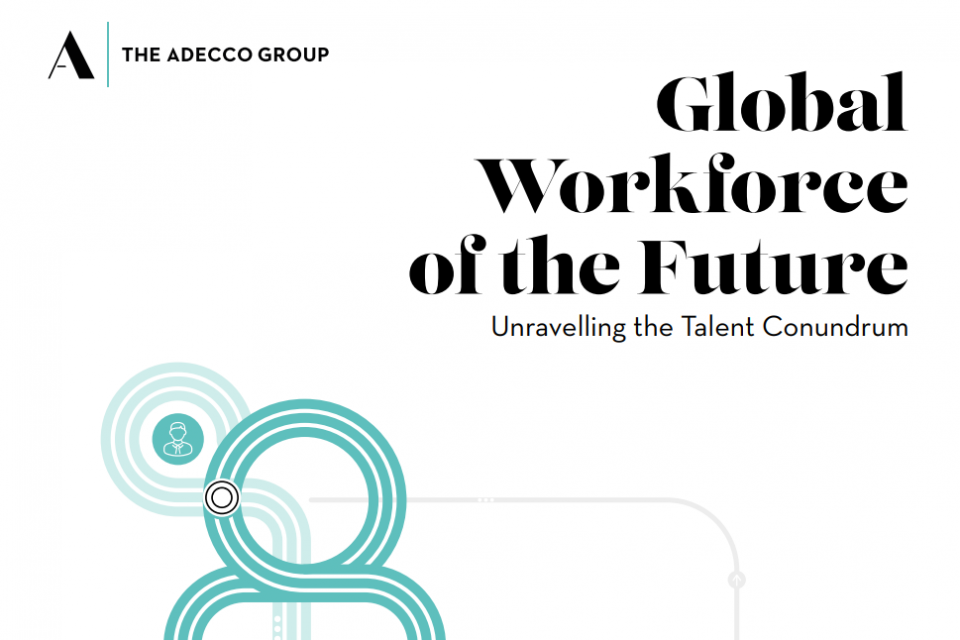Almost a quarter of Romanians say that mental wellbeing has worsened in the past year, following research from the Adecco group

Companies must embrace an employee-first approach to avert a quitting crisis in the face of the rising living costs, by offering workers financial support and a better work-life balance
- 56% of Romanians are happy in their current job. However, this is between 4%-10% below the global average.
- 21% of Romanians say mental wellbeing has worsened over the last 12 months, which is within 3% of the global average.
- Having an additional income source to their main job is the norm for over 70% of non-Desk Workers in Romania.
- When it comes to the sense of job security, 76% of Romanian desk workers are satisfied with this.
- Almost half of Romanians state they are worried about burnout.
- Globally, three in five (61%) of all workers fear their salary won’t cope with the rising cost of living.
- `Quitfluencers’ threaten a mass exit contagion, as seven in 10 workers admit that seeing colleagues resign makes them consider quitting themselves, with half of workers actually following their colleagues out of the door.
- Of the 27% of all workers globally planning to quit their job in the next 12 months, almost half (45%) are already actively looking for jobs.
- Gen Z are driving flexibility demands, with nearly half already working a four-day week (47%) and 64% taking a pay cut to do so.
Faced with increasing economic uncertainty, companies must tackle both financial and well-being concerns to support their employees during these uncertain times and keep resignations at bay, according to new research from the Adecco Group, the world’s leading talent company. The Company unveiled the results of the third edition of its global workforce study: Global Workforce of The Future Report 2022.[1] The reportexamines the world of work through the lens of 34,200 respondents (both desk- and non-desk-based workers) across 25 countries* – the largest and most wide-ranging cross-section of workers globally ever covered by the research.
Valerie Beaulieu-James, The Adecco Group’s Chief Sales and Marketing Officer, said: “To avoid workers feeling the temptation to quit – and this is becoming contagious on a global scale – companies must seize the moment to reprioritise their commitment to their people and not simply rely on the blunt tool of salary rises alone. In meeting workers’ expectations, companies should re-think their approach to flexibility, as this will make a difference for those workers who are on the fence between staying or leaving. To tackle this head on, make retention strategies the top priority and ensure managers have career conversations with their team members as a crucial first step. I cannot emphasize enough how important it is to invest in your workforce and focus on providing life-long learning opportunities. Re-skilling and up-skilling are critical if we are to reinforce the handshake between employer and employee in the new world of work. Empowering managers to reinvigorate a clear workplace purpose that will motivate all workers and connect with their personal purpose is paramount.”
Florin Godean, Country Manager Adecco Romania, said: “Although we have noticed that more than half of Romanians are currently happy with their job, we are still below the global average and the statistics of other countries. Considering the fact that we have also seen a decay in mental wellbeing, with almost a quarter of Romanians declaring mental health has worsened during the past 12 months, we can agree that there is a lot of room for improvement. Moreover, in the current conversation of wage growth, I believe it’s essential to point out that 71% of Romanian non-desk workers have an additional source to their main income and close to a quarter of desk-based workers have a supplementary pay. This provides us with an overview on how employees are currently struggling with their salaries each month and thus resort to taking other jobs or side hustles.”
Job happiness and why workers change jobs
Globally, 62% of workers are happy in their current job, which is consistent across the regions, withthe exception of European markets and Japan, where most countries fall below average. In Romania, 56% of Romanians interviewed declared their happiness in the current employment. Comparing this to Poland, we can see that 60% have stated the same.
Mental wellbeing, at its weakest point in the past year?
When it comes to mental wellbeing, we can surely say it’s one of the most important benefits that any company could include in its offers. Despite this fact, on a global scale, 24% of respondents believe mental health has become worse over the last 12 months. Furthermore, looking at the local market, 21% of Romanians also say mental wellbeing has worsened in the past year, which is within 3% of the global average.
Employees need additional income to their main job
Having an additional income source to their main job is the norm for over half of non-desk workers on a global level. On a local level, 71% of Romanians in this study currently do this in order to make ends meet. This is more than 10% above global average. On top of that, almost a quarter (23%) of desk-based workers globally have a supplementary income, in comparison to 32% in Romania.
Job security satisfaction across Romania
71% of non-desk workers in Romania are satisfied regarding their sense of job security, as they feel confident about the labour market and their ability to find a new job quickly, compared to 70% on a global average. Furthermore, 76% of Romanian desk workers have a sense of job security, while only 74% feel so on a global scale.
Is burnout still something to worry about?
On a macro level, 1 out of 2 workers is worried about burnout. Taking a closer look, we can see that workers in LatAm, USA, Australia, Turkey and a few European countries are more anxious than the global average. Locally, 46% of Romanians declare they are distressed about burnout, whereas 49% of all workers globally have the same concern.
Cost of living crisis driving workers to take on extra work
The research identifies inflation as a major cause for concern for workers. Three in five (61%) across the globe are worried their salary is not high enough to manage the current rates of inflation and the accompanying cost of living crisis. This is making more than half (51%) of workers more likely to look for a second job, with nearly four in 10 non-desk workers (35%) admitting to having worked cash-in-hand jobs to make ends meet. Millennials are most likely to do both.
Quitfluencers threatening a mass exit contagion
The survey highlights the rise of the ‘quitfluencer’. Over two thirds (70%) consider quitting themselves if they see others leaving. Countries most exposed to the risk of the quitfluencer phenomenon are those with the highest numbers of workers most likely to resign. Workers are most likely to leave their jobs in Australia (33%), Switzerland (32%) and in Eastern Europe, Middle East and North Africa (31%). Globally, Gen Z are 2.5 times more likely to be influenced to quit than Baby Boomers.
The survey’s findings show a clear need for companies to focus on retention solutions; given almost a third of workers globally (27%) say they intend to quit their job within the next 12 months. Of those, almost half (45%) are actively looking. Here lies an opportunity for companies to intervene and buck the trend; investing in reskilling and retention schemes to keep the quitting contagion at bay.
Younger generations demanding flexibility
Younger generations are increasingly rebelling against the ‘greedy job’ theory, steering clear of jobs which take over your life. Nearly half of Gen Z (47%) work a four-day week, compared to only 18% of Baby Boomers.
Of those 32% of all workers who are currently working a four-day week, over half (51%) took a wage cut to do so. While the four-day work week is not yet a key driver in choosing a job, this could change quickly, and companies must be willing to create a flexible working environment to keep workers happy and engaged in the long-term as their needs continue to evolve. As a focal point to retain talent in 2023 and beyond, companies must ensure flexible work regimes, and offer workers a healthier work life balance. Salary isn’t the be all and end all.
Overall worker satisfaction and loyalty based on several factors
As companies face the challenge of a quitting contagion, against the backdrop of wage inflation and a potentially looming recession, the report also points to solutions in certain key areas to reduce turnover. The findings make clear that while salary has been an effective recruitment tool in recent years, workers no longer stay just for the salary. The additional reasons for them to commit to an employer include a strong company culture that offers a good work-life balance, fruitful relationships with colleagues and carefully crafted development opportunities, especially for non-managers. Overall job satisfaction today is multidimensional and based on the right mix of pay for performance, career advancement, flexibility, mental health and well-being. To avert a quitting crisis, now is the time for companies to seize the moment and reprioritise their commitment to their people, reinvigorating a clear workplace purpose that will motivate all workers, wherever they are.
[1] 2020 and 2021 editions appeared as Resetting Normal study.












